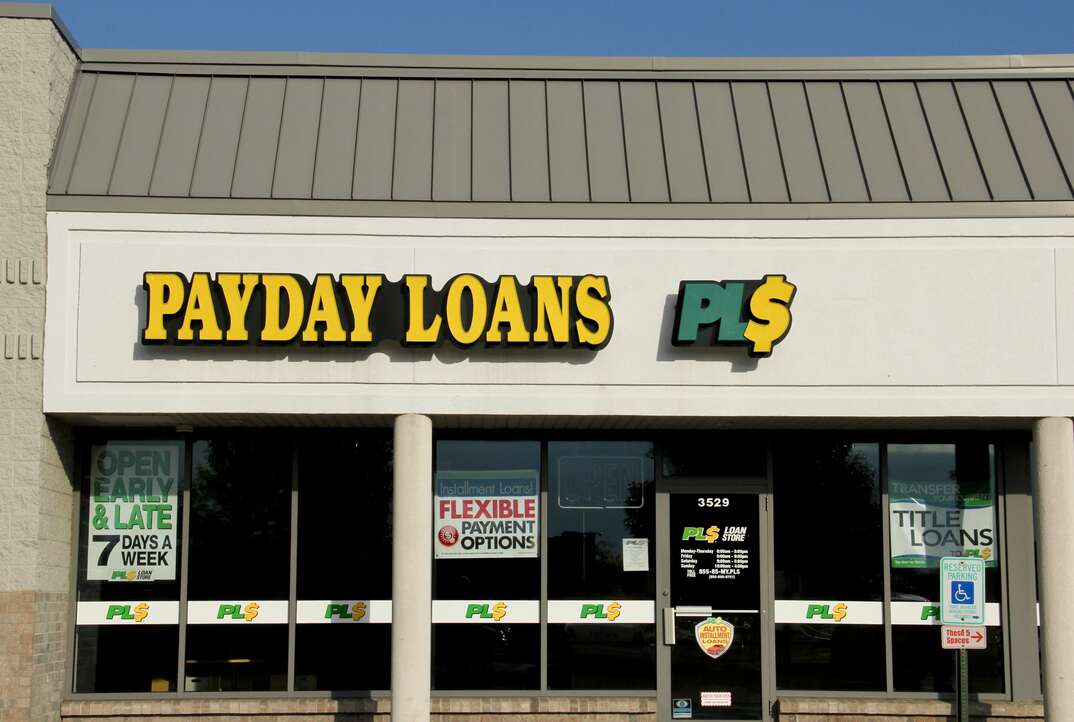- AppliancesElectriciansHVACLandscapingLocksmithPest ControlPlumbingRenovationRoofingT V RepairAll Home Improvement
- Car AccidentClass ActionCorporate LawCriminal DefenseDivorce LawEmployment LawFamily LawFinancial LawLegal AidMedical Injury LawyersMedical MalpracticeReal Estate LawWater Fire RestorationAll Legal
- InvestmentRetirementAll Finance
- Animal InsuranceAutoGeneral InsuranceHealth PolicyHome RentersAll Insurance
- DentalHealth SpecialistsAll Medical
- Animal CareVeterinaryAll Pets
- Auto GlassTowingAll Automotive
What Is a Payday Loan?

As the cost of living continues to rise, it's no surprise many hard-working people find themselves running short on cash between paydays. Enter the payday loan, a financial product that provides short-term, high-interest funds based on a borrower's income and ability to repay. Unlike traditional loans, a person's credit isn't a factor for approval, and most borrowers have access to the money they need within a few business days.
Payday loans can really help if you've got a pressing bill or other financial emergency that can't wait until your next paycheck. However, it's important to take some time to learn how payday loans work when it comes to finance charges, fees and repayment terms.
If payday loans are legal in your state, you can usually apply for funds online or through storefront payday lenders. On a payday loan application, borrowers are typically required to provide identifying information such as their name, address, date of birth and Social Security number, along with employment and income information.
The loan application will generally go through an underwriting process that can take as little as a few minutes to a few days. If approved, the borrower is provided with an agreement or contract that states the terms and conditions of the loan. Once the agreement is signed by the lender and borrower, funds are disbursed by paper check, cash or direct deposit.
Are Payday Loans Secured or Unsecured?
Payday loans are unsecured and don't usually require collateral. Specific requirements can vary depending on the lender, but most lenders require borrowers to show proof of consistent income, either through employment or benefits. Lenders can verify a borrower's income by contacting their employer or requesting a copy of their bank records that show recurring direct deposits.
While payday loans can help bridge the gap between paydays, it's important to understand the pros and cons of taking out a short-term, high-interest loan. Here are some things to consider.
Benefits of Taking Out a Payday Loan
Payday loans are helpful financial products for people with less-than-stellar credit who may not be able to obtain traditional bank loans. The loans are based on a person's income instead of their credit, and potential borrowers can often qualify by providing proof of steady income and verifying their identities. While specific amounts can vary from state to state, typical payday loans range from $250 to $1,000. Having access to quick cash when you're in a bind can help cover costs for groceries, gas and other necessities until your next paycheck.
More Related Articles:
- When Do You Need a Lawyer? Determine If You Need to Hire an Attorney
- What Is a Class-Action Lawsuit?
- What Is a Misdemeanor?
- What to Do After a Car Accident
- What Is Power of Attorney?
Potential Drawbacks of Payday Advance Loans
According to the U.S. Consumer Financial Protection Bureau, payday lenders can tack on finance charges between $10 and $30 for every $100 borrowed, or an APR of 400%, depending on specific state laws. Some states also allow borrowers to refinance their loans on the due date and only pay the finance charge, which can add to the high costs, especially if the borrower refinances multiple times.
Most payday loan payments are automatically debited from the borrower's bank account on the borrower's payday. If the borrower's paycheck is late and the debit hits the account on time, it can cause bounced payments or overdrafts, along with hefty bank fees. Defaulted payday loans may end up at a collection agency, where debt collectors may use deceptive tactics to attempt to collect the money owed.
Understanding the pros and cons of payday loans can help you determine if this type of financial product is the right option to meet your immediate financial needs.
What Are Payday Alternative Loans?
Some lenders offer payday alternative loans, sometimes referred to as installment loans. While specifics may vary based on state regulations, most installment loans allow borrowers to pay their loans down in installments vs. lump sum payments. Interest and fees tend to be lower on installment loans, and you can usually pay down the loan over a period of several months to a year.
Elocal Editorial Content is for educational and entertainment purposes only. The information provided on this site is not legal advice, and no attorney-client or confidential relationship is formed by use of the Editorial Content. We are not a law firm or a substitute for an attorney or law firm. We cannot provide advice, explanation, opinion, or recommendation about possible legal rights, remedies, defenses, options or strategies. The opinions, beliefs and viewpoints expressed by the eLocal Editorial Team and other third-party content providers do not necessarily reflect the opinions, beliefs and viewpoints of eLocal or its affiliate companies. Use of the Blog is subject to the
Website Terms and Conditions.The eLocal Editorial Team operates independently of eLocal USA's marketing and sales decisions.



